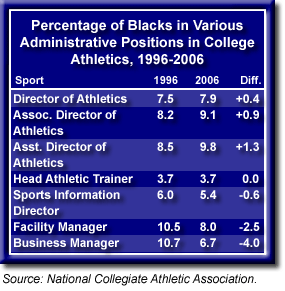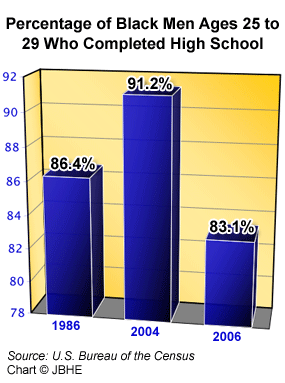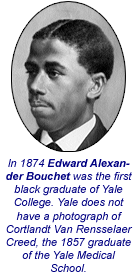Race-Sensitive University Admissions Safe for Now: Supreme Court Rejects Public School Assignment Plans Based on Race
 Last Thursday the U.S. Supreme Court ruled in a 5-4 decision that school districts in Seattle and Louisville could not use the factor of race to assign students to public schools. Many observers see this ruling as a bitter betrayal of the 1954 landmark desegregation decision in Brown v. Board of Education. Last Thursday the U.S. Supreme Court ruled in a 5-4 decision that school districts in Seattle and Louisville could not use the factor of race to assign students to public schools. Many observers see this ruling as a bitter betrayal of the 1954 landmark desegregation decision in Brown v. Board of Education.
The Seattle school district permitted students to choose which school they wanted to attend. But when more students wished to attend a particular school than there were open slots, racial assignments were used to maintain diversity. In Louisville the school district policy was that public schools have at least 15 percent but no more than 50 percent African-American enrollment. To meet these goals, some students, based solely on their race, were assigned to schools often far from their homes.
Although the Court ruled against the use of race in school assignments, the decision was a relief to some in the higher education community. It was feared that the Court would readdress its 2003 ruling in Grutter which affirmed the “narrowly tailored” use of race in admissions decisions in higher education.
In fact, the justices referred to Grutter as binding precedent throughout the opinion, concurring opinion, and the dissents.
In the recent case handed down this past week, Parents Involved in Community School v. Seattle School District No. 1 et al., Chief Justice John Roberts, delivering the opinion of the Court, stated, “Before Brown, schoolchildren were told where they could and could not go to school based on the color of their skin. The school districts in these cases have not carried the heavy burden of demonstrating that we should allow this again, even for very different reasons. The way to stop discrimination on the basis of race is to stop discriminating on the basis of race.”
 In a passionate dissent, Justice Stephen Bryer accused the majority of ignoring past precedent which permitted hundreds of school districts nationwide to use racial remedies to achieve racial integration. Bryer stated that the Seattle and Louisville plans were so “narrowly tailored” that it would be next to impossible to come up with any plan that used race as a factor that would be acceptable to the Court’s new majority. Justice Bryer also ridiculed the majority for distinguishing the state’s “compelling interest” in promoting racial diversity in the Grutter case from a similar compelling interest in these cases. He stated, “I do not believe the Constitution could possibly find ‘compelling’ the provision of a racially diverse education for a 23-year-old law student but not for a 13-year-old high school pupil.” In a passionate dissent, Justice Stephen Bryer accused the majority of ignoring past precedent which permitted hundreds of school districts nationwide to use racial remedies to achieve racial integration. Bryer stated that the Seattle and Louisville plans were so “narrowly tailored” that it would be next to impossible to come up with any plan that used race as a factor that would be acceptable to the Court’s new majority. Justice Bryer also ridiculed the majority for distinguishing the state’s “compelling interest” in promoting racial diversity in the Grutter case from a similar compelling interest in these cases. He stated, “I do not believe the Constitution could possibly find ‘compelling’ the provision of a racially diverse education for a 23-year-old law student but not for a 13-year-old high school pupil.”
At the very least, the ruling gives comfort to various conservative and indeed antiblack groups that are intent on pushing blacks down into second-tier institutions. Although the decision appears to uphold the Grutter decision, the ruling will tend to have a further dampening effect on the use of race in the college admissions process. The opinion of the Court leads to the conclusion that the current justices will not permit race to be used as the deciding factor in any college or university admissions decision. It seems almost certain that only the most “narrowly tailored” use of race as one of a multitude of factors in an admissions decision will be permitted.
Colleges and universities that continue to admit considerably higher percentages of black applicants than whites, and those educational institutions that continue to admit black students with standardized test scores and grade point averages significantly below those of white students who are rejected, may now feel pressure to scale back in their efforts to increase racial diversity in their student bodies. As a result, university admissions officers, who almost without exception favor race-sensitive admissions, will have to tread more carefully than before when they consider race in their decisions for fear of generating new litigation.
One thing that is absolutely clear is that the Supreme Court of 2003 that decided the Grutter case was more friendly to race-conscious programs than the current, more conservative, Court.
  |
“This nation has a moral and ethical obligation to fulfill its historic commitment to creating an integrated society that ensures equal opportunity for all its children.”
— Justice Anthony Kennedy in a concurring opinion in two cases decided this past week that outlawed the use of race in the assignment of students to public schools. (See story above)
|
Blacks Are Making Almost No Progress in Increasing Their Presence in Administrative Positions in College Athletics
A recent report from the National Collegiate Athletic Association shows a lack of significant progress in increasing the number of African Americans in administrative positions in college athletics. The data shows that in 1996 blacks were 7.5 percent of all athletic directors. This increased to 7.9 percent in 2006. The percentage of blacks serving as sports information director, facility manager, or business manager for college athletic departments actually declined in the 1996-2006 period.

Major Hiring Coup by the University of Chicago
 In an important hire, the University of Chicago has recruited the distinguished African-American historian Charles Payne, who was formerly at Duke University. Professor Payne, one of the nation’s leading experts on social inequality and urban school reform, was named the Frank P. Hixon Distinguished Service Professor in the School of Social Service Administration at the University of Chicago. He has served as a professor of history and African and African-American studies at Duke since 1998. Prior to coming to Duke, Professor Payne taught at Northwestern University, Williams College, Haverford College, and Southern University. In an important hire, the University of Chicago has recruited the distinguished African-American historian Charles Payne, who was formerly at Duke University. Professor Payne, one of the nation’s leading experts on social inequality and urban school reform, was named the Frank P. Hixon Distinguished Service Professor in the School of Social Service Administration at the University of Chicago. He has served as a professor of history and African and African-American studies at Duke since 1998. Prior to coming to Duke, Professor Payne taught at Northwestern University, Williams College, Haverford College, and Southern University.
Professor Payne is a graduate of Syracuse University and holds a Ph.D. from Northwestern University. He is the author of several books including the award-winning I’ve Got the Light of Freedom: The Organizing Tradition and the Mississippi Freedom Struggle. He is currently completing work on a book entitled So Much Reform, So Little Change.
Duke Expects Its Most Racially Diverse Freshman Class, But New Black Enrollments Drop for the Third Year in a Row
A recent press release from Duke University announced that the incoming Class of 2011 will be the university’s most diverse class ever. Forty-four percent of Duke’s incoming class will be “students of color.”
By a large margin, Asian-American students make up the largest segment of Duke’s students of color. There will be 500 Asian-American students making up about 29 percent of all freshmen.
Preliminary numbers show that 156 black students have indicated they will enroll. This is about 9.2 percent of all incoming freshmen. In the fall of 2006 there were 160 black first-year students who made up 9.5 percent of the incoming class. In fact this will be the third year in a row where the number of black freshmen at Duke has declined. In the fall of 2004 there were 188 black freshmen at Duke making up 11.5 percent of all first-year students.
Black Student College Graduation Rates Dip in Maryland
 The regents of the University System of Maryland report that black student graduation rates at the system’s eight four-year colleges have declined. Systemwide, 46 percent of the black students who entered college in 2000 earned a bachelor’s degree by 2006. For white students, the graduation rate is 64 percent. The 18 percentage point racial gap increased from 15 percentage points the year before. The regents of the University System of Maryland report that black student graduation rates at the system’s eight four-year colleges have declined. Systemwide, 46 percent of the black students who entered college in 2000 earned a bachelor’s degree by 2006. For white students, the graduation rate is 64 percent. The 18 percentage point racial gap increased from 15 percentage points the year before.
The most notable decline in black student graduation rates occurred at the University of Maryland Eastern Shore, a historically black institution. There the black student graduation rate dropped from 48 percent to 41 percent.
One encouraging note: The black student graduation rate at the flagship University of Maryland campus at College Park increased over the past year.
Harvard Professor’s Novel Proposal to Pay Public School Students Who Do Well on Standardized Tests
 Roland Fryer Jr., an assistant professor of economics and associate director of the W.E.B. Du Bois Institute at Harvard University, has proposed a novel idea to boost black students’ scores on standardized tests: pay them for high scores. Roland Fryer Jr., an assistant professor of economics and associate director of the W.E.B. Du Bois Institute at Harvard University, has proposed a novel idea to boost black students’ scores on standardized tests: pay them for high scores.
Professor Fryer is organizing an incentive program for students in the New York City public school system. Students in fourth and seventh grade in the city’s schools will be required to take a new set of standardized tests this fall. Fryer proposes that fourth-graders who score well get at least $5, with the top scorers receiving $25. For seventh-graders, the maximum reward would rise to $50. Money would be raised from private sources to pay the students’ rewards.
Dr. Fryer believes that students from white, two-parent families in the suburbs generally are encouraged to learn and do well in school by their families and peers. But often similar encouragement is lacking for children in inner-city schools. Students in these schools have difficulty with the concept that if they work hard now, it will benefit them many years later. By adding an immediate monetary incentive, Fryer believes large numbers of students will be motivated to do well on these tests.
New York City Mayor Michael Bloomberg has not approved the plan but after hearing the Fryer proposal said, “If we aren’t looking at everything, shame on us.”
In Memoriam
Elias Blake Jr. (1929-2007)
 Elias Blake Jr., the former president of Clark College in Atlanta (now part of Clark Atlanta University), died at his home in Washington, D.C., in late June. He was 77 years old. Elias Blake Jr., the former president of Clark College in Atlanta (now part of Clark Atlanta University), died at his home in Washington, D.C., in late June. He was 77 years old.
Dr. Blake was a native of Brunswick, Georgia, where he attended racially segregated schools. He earned a bachelor’s degree from Paine College, a historically black educational institution in Augusta, Georgia. Blake was later awarded a master’s degree in education from Howard University and earned a doctorate from the University of Illinois.
An adviser to Presidents Nixon and Carter on higher education, Dr. Blake served as deputy director of the Upward Bound program. He also served as president of the Institute for Services to Education, a group that helped predominantly white southern colleges recruit black students.
He was named president of Clark College in 1977 and served in that post for 10 years.
Wanda Bethune Taylor (1954-2007)
Wanda B. Taylor, an associate professor of public health at South Carolina State University, died last month at the age of 53. A native of Fort Benning, Georgia, Professor Taylor earned a bachelor’s degree in biology from the University of South Carolina. She held a master’s degree in nutrition from South Carolina State University and a Ph.D. in public health from the University of South Carolina.
Annette Kearney (1939-2007)
Annette Kearney, a longtime educator who taught at six different colleges and universities, has died as a result of a stroke at a hospital in New Brunswick, New Jersey. Dr. Kearney, who held a Ph.D. in counseling psychology from Rutgers University, taught at the University of Maryland, Shaw University, Michigan State University, Delaware State University, Kean University, and Rutgers University. Before her retirement in 1993 she was superintendent of schools in Plainview, New Jersey.
Award
 • Toni Morrison, Nobel laureate for literature and professor emerita at Princeton University, was awarded the Radcliffe Medal from the Radcliffe Institute for Advanced Study at Harvard University. • Toni Morrison, Nobel laureate for literature and professor emerita at Princeton University, was awarded the Radcliffe Medal from the Radcliffe Institute for Advanced Study at Harvard University.
Grant
• The Pennsylvania Department of Health awarded a four-year, $4.2 million grant to the Wistar Institute for the development of a universal flu vaccine. Part of the grant will be used to provide research internships for undergraduate students at historically black Lincoln University and Cheyney University. Cheyney University faculty will also be involved in the vaccine research effort.
|
The Alarming Drop in High School Completions Among Black Males
In 2006, 85.6 percent of young blacks ages 25 to 29 had completed high school. This was the lowest percentage since 1996. For whites ages 25 to 29, 93.4 percent had completed high school.
The drop in high school completions for young blacks in all likelihood is due to the low rate of high school graduations of black males. In 2006, 83.1 percent of black men ages 25 to 29 had a high school diploma. Just two years earlier in 2004, more than 91 percent of black males in that age group had completed high school. Twenty years ago in 1986, 86.4 percent of black males in the 25 to 29 age group had graduated from high school.

Not One of the 64 New Faculty Hires at the University of Kentucky Is Black
 The University of Kentucky reports that for the 2007-08 academic year beginning this fall, none of the 64 new faculty members in the College of Arts and Sciences will be black. The university said there were nine black candidates among the 156 finalists for the 64 positions. Three black candidates were offered positions but all three declined the job offer. The University of Kentucky reports that for the 2007-08 academic year beginning this fall, none of the 64 new faculty members in the College of Arts and Sciences will be black. The university said there were nine black candidates among the 156 finalists for the 64 positions. Three black candidates were offered positions but all three declined the job offer.
Blacks will make up 4.1 percent of the 340-member faculty in the College of Arts and Sciences at the University of Kentucky. For the university as a whole, blacks are 3.4 percent of the 1,965-member faculty.
A New Era for the University of Medicine and Dentistry of New Jersey
 This week William F. Owen Jr. became president of the University of Medicine and Dentistry of New Jersey. He is the first African American to lead the university and one of the first blacks to head a major medical school that is not at a historically black college or university. This week William F. Owen Jr. became president of the University of Medicine and Dentistry of New Jersey. He is the first African American to lead the university and one of the first blacks to head a major medical school that is not at a historically black college or university.
A kidney specialist, Dr. Owen is a graduate of Brown University. He received his medical degree at Tufts University and completed his internship and residency at Brigham and Women’s Hospital in Boston. Owen is the author of two books and approximately 200 journal articles on kidney dialysis and transplantation.
In past years the University of Medicine and Dentistry of New Jersey has been plagued by serious issues of institutional integrity and improper political influences.
The Owen appointment was made by a reconstituted board of trustees chaired by Robert Del Tufo, former attorney general of New Jersey. The board has taken a number of measures, including the Owen appointment, to bring new standards of transparency and governance to the university.
Yale Honors Its First Black Graduate
 In 1874 Edward Bouchet became the first African American to earn a degree from Yale College. He graduated with the highest honors and was the fifth black American to be named Phi Beta Kappa. Two years later Bouchet was awarded a doctorate in physics from Yale, the first African American to earn a Ph.D. In 1874 Edward Bouchet became the first African American to earn a degree from Yale College. He graduated with the highest honors and was the fifth black American to be named Phi Beta Kappa. Two years later Bouchet was awarded a doctorate in physics from Yale, the first African American to earn a Ph.D.
But while Bouchet was the first African American to earn Bachelor’s and Ph.D. degrees at Yale, he was not the first African American to earn a degree. Last month Yale unveiled a monument commemorating the 150th anniversary of the 1857 graduation of Cortlandt Van Rensselaer Creed from the Yale Medical School.
Creed was the son of a Yale University janitor. His mother was a teacher in the New Haven public schools. He was accepted for admission in 1854 and earned his medical degree in 1857.
Creed served as a surgeon for the Union Army during the Civil War. He then opened a practice in Connecticut which served both black and white patients. When James Garfield was shot in 1881, Creed was consulted by the president’s physicians. Creed died in 1900.
This June, Yale invited 20 of Creed’s descendants to New Haven for the medical school’s reunion weekend. The celebration included the unveiling of a monument over Creed’s grave in New Haven’s Grove Street Cemetery.
Study Examines the Longstanding Economic and Educational Benefits of a College Education for Blacks and Other Minorities
 In their new book Passing the Torch: Does Higher Education for the Disadvantaged Pay Off Across The Generations? authors Paul Attewell and David E. Lavin, both professors of sociology at the Graduate Center of the City University of New York, conclude that increased college enrollments of blacks and other minorities have had a tremendous beneficial effect in the minority community and for society as a whole. In their new book Passing the Torch: Does Higher Education for the Disadvantaged Pay Off Across The Generations? authors Paul Attewell and David E. Lavin, both professors of sociology at the Graduate Center of the City University of New York, conclude that increased college enrollments of blacks and other minorities have had a tremendous beneficial effect in the minority community and for society as a whole.
Using data that tracked students for 20 or 30 years after they first entered higher education, the authors found that as many as 70 percent of the students eventually graduated from college, a rate far higher than most traditional measures of college completion have indicated.
Passing the Torch also shows that African-American college graduates receive longstanding economic benefits from their college education. Over time, college degrees hold their value for disadvantaged students.
Another important finding in this study is that students who entered college a generation ago tend to pass along an expectation of higher education to their children. College-educated parents are more likely to have stable families; they tend to read to their children more often, to be more involved in their children’s schools, to make a greater effort to enrich the cultural activities of their children, and to be more involved with the community. All of these factors add to the educational upbringing of their children, making it more likely that the children will someday go to college.
Leading Liberal Arts Colleges Confer 19 Honorary Degrees on Blacks
Last week JBHE reported that this spring the nation’s 30 highest-ranked universities awarded 25 honorary degrees to blacks.
In addition, 19 honorary degrees were awarded to blacks from the nation’s 30 highest-ranked liberal arts colleges. In 2006 only 11 honorary degrees were awarded to blacks from these 30 selective liberal arts schools. Among the leading liberal arts colleges, Bates College, Colby College, and Haverford College each awarded honorary degrees to two blacks.

  |
58% Percentage of black children ages 3 to 5 in 1991 who were enrolled in preschool education programs.
66% Percentage of black children ages 3 to 5 in 2005 who were enrolled in preschool education programs.
source: U.S. Department of Education
|
Cheyney University of Pennsylvania Selects New President
 Michelle Howard-Vital was named president of Cheyney University, a historically black educational institution which is part of the Pennsylvania State System of Higher Education. Cheyney has an enrollment of about 1,550 students, most of whom are black. Michelle Howard-Vital was named president of Cheyney University, a historically black educational institution which is part of the Pennsylvania State System of Higher Education. Cheyney has an enrollment of about 1,550 students, most of whom are black.
Dr. Howard-Vital recently served as interim president of Winston-Salem State University in North Carolina. Previously she was the associate vice president for academic affairs at the University of North Carolina at Chapel Hill. She holds bachelor’s and master’s degree from the University of Chicago and a Ph.D. in public policy analysis from the University of Illinois at Chicago.
Embattled Mississippi Valley State University President Steps Down
 Lester C. Newman, who has served as president of Mississippi Valley State University for the past nine years, announced that he will relinquish his post on July 15. Newman has faced calls for his resignation from both faculty and alumni groups in recent months. In February the faculty senate issued a vote of “no confidence” in Newman. Critics charged that Newman was a micromanager and treated faculty and staff unprofessionally. Lester C. Newman, who has served as president of Mississippi Valley State University for the past nine years, announced that he will relinquish his post on July 15. Newman has faced calls for his resignation from both faculty and alumni groups in recent months. In February the faculty senate issued a vote of “no confidence” in Newman. Critics charged that Newman was a micromanager and treated faculty and staff unprofessionally.
Appointments
 • Jeffery Rose was named to the board of trustees of Rice University. A 1977 alumnus of the university, Rose is senior vice president and regional manager for commercial banking at Wells Fargo in Houston. • Jeffery Rose was named to the board of trustees of Rice University. A 1977 alumnus of the university, Rose is senior vice president and regional manager for commercial banking at Wells Fargo in Houston.
 • Dianne B. Rhoades was promoted to vice president of administration and director of alumni affairs at St. Paul’s College in Lawrenceville, Virginia. She was the director of extended and continuing studies. She recently completed her doctorate in higher education leadership at Capella University in Minneapolis. • Dianne B. Rhoades was promoted to vice president of administration and director of alumni affairs at St. Paul’s College in Lawrenceville, Virginia. She was the director of extended and continuing studies. She recently completed her doctorate in higher education leadership at Capella University in Minneapolis.
 • Denzil Suite was promoted to associate vice president for student affairs at the University of Southern California. He has been serving as assistant vice president for student affairs. He is also an associate professor at the USC Rossier School of Education. • Denzil Suite was promoted to associate vice president for student affairs at the University of Southern California. He has been serving as assistant vice president for student affairs. He is also an associate professor at the USC Rossier School of Education.
 • Wil Smith was promoted to associate dean of multicultural student programs at Bowdoin College. He was the assistant dean of student affairs. A 2000 graduate of Bowdoin College, Smith earned a law degree at the University of Maine. • Wil Smith was promoted to associate dean of multicultural student programs at Bowdoin College. He was the assistant dean of student affairs. A 2000 graduate of Bowdoin College, Smith earned a law degree at the University of Maine.
• Eugene Lamb Jr. was named to the board of trustees of the Tallahassee Community College District. A graduate of Dillard University, Lamb taught public school for 30 years. He has served as a commissioner in Florida’s Leon County since 2004.
 • Kevin G. McDonald was promoted to vice president for multicultural affairs at Virginia Tech in Blacksburg, Virginia. He has been serving as director of the Office for Equal Opportunity at the university. • Kevin G. McDonald was promoted to vice president for multicultural affairs at Virginia Tech in Blacksburg, Virginia. He has been serving as director of the Office for Equal Opportunity at the university.
McDonald is a graduate of Andrews University in Berrien Springs, Michigan, and holds a law degree from Ohio State University.
|